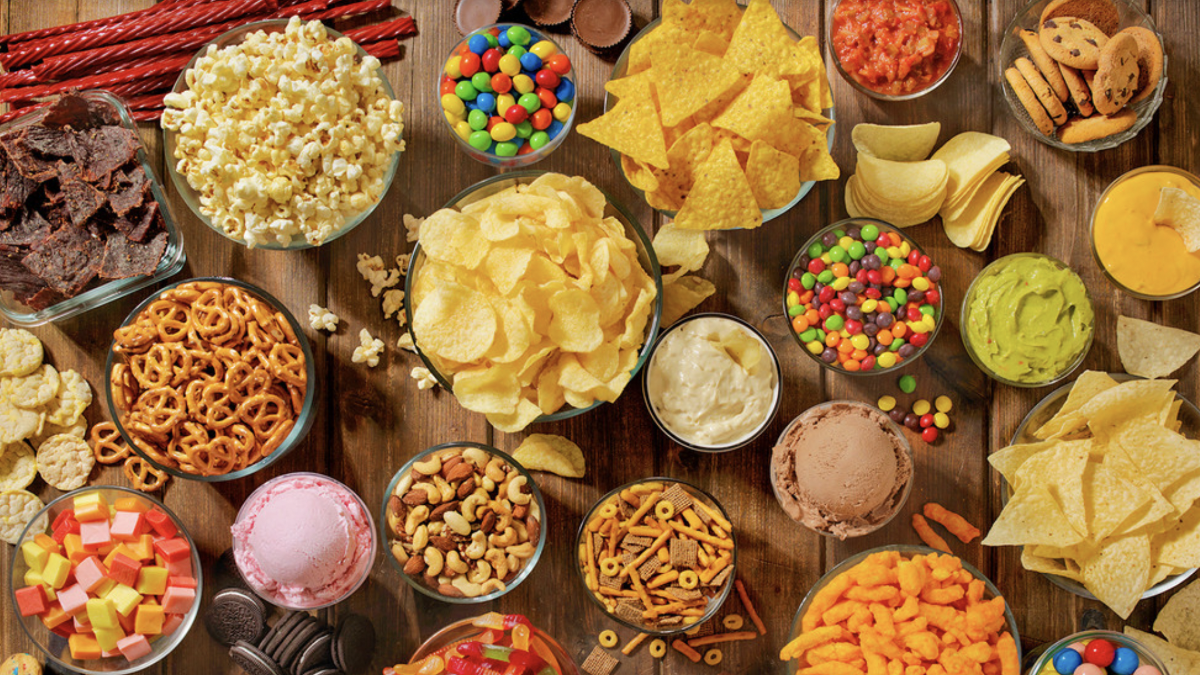Tame Overeating with These 3 Simple Rules from a Scientist

Ultra-processed foods (UPFs) are a defining feature of our modern diets. From breakfast cereals and packaged snacks to sodas and ready-meals, they are engineered to be hyper-palatable, convenient, and, quite frankly, difficult to stop eating once you start. This isn't accidental; it's by design. These products are often crafted with precise combinations of sugar, salt, fat, and additives that stimulate our reward systems, bypassing our natural satiety cues.
Even for someone who understands these mechanisms intimately – a scientist who studies UPFs for a living – resisting their allure can be a daily battle. Knowledge is powerful, but practical strategies are what truly make a difference.
"Knowing how ultra-processed foods affect us is one thing; consistently applying that knowledge in a world saturated with them is another," explains Dr. Alistair Finch, a researcher specializing in food science and nutrition. "I've found that rigid rules are often unsustainable. Instead, a few simple, guiding principles have been far more effective in helping me manage my own intake and avoid overeating."
Here are three straightforward rules that this scientist follows to help him navigate the tempting landscape of ultra-processed foods:
Rule 1: Never Eat UPFs When I'm Genuinely Hungry (or Alone and Bored).
The Problem: UPFs are often consumed not out of true physiological hunger, but due to cravings, emotional states (like boredom, stress, or sadness), or simply convenience when a healthier option isn't readily available. When genuinely hungry, our bodies crave nutrient-dense foods, but the immediate gratification of UPFs can override this. Eating them when bored or alone also removes social accountability and can lead to mindless consumption.
The Strategy: "This is my golden rule," Dr. Finch states. "If my stomach is growling and I'm truly hungry, I reach for whole, unprocessed foods first – a piece of fruit, some nuts, yogurt, or a properly prepared meal. If I find myself craving a UPF, I pause and ask: 'Am I actually hungry, or am I bored/stressed/just looking for a dopamine hit?' If it's the latter, I actively seek an alternative activity or a whole food snack."
Why it Works: This rule helps differentiate between true hunger and emotional/habitual eating. By ensuring that genuine hunger is met with satisfying, nutrient-rich foods, it reduces the likelihood of spiraling into overconsumption of empty calories from UPFs. It also breaks the cycle of associating UPFs with boredom or emotional comfort.
Rule 2: Treat UPFs as "Treats" for Shared Experiences, Not Solo Sustenance.
The Problem: The convenience and affordability of UPFs make them easy to consume as everyday staples, particularly when eating alone. This normalizes their presence and makes them a default.
The Strategy: "I reserve UPFs for specific, planned social occasions," Dr. Finch elaborates. "If we're at a birthday party, I might have a slice of cake. If I'm watching a movie with friends, I might share some chips. But I almost never buy them to have on hand for myself, and certainly not for daily meals or solo snacking."
Why it Works: This rule transforms UPFs from regular food items into occasional indulgences tied to social interaction. It changes the context of consumption from "fuel" or "habit" to "celebration" or "shared enjoyment." By not having them readily available at home, it significantly reduces the opportunity for impulsive, solo overeating. It also implicitly makes them more special when they are consumed.
Rule 3: Optimize My Environment for Whole Foods First.
The Problem: Our environment plays a huge role in our food choices. If healthy options require more effort or are less visible, we're more likely to grab what's easy and readily available.
The Strategy: "My kitchen is always stocked with easily accessible whole foods," Dr. Finch explains. "Fruits are washed and visible on the counter. Vegetables are pre-chopped in the fridge. Healthy proteins are ready to go. Conversely, I rarely have any UPFs in the house. If they're not there, I can't eat them." This extends to meal planning, where he prioritizes cooking with fresh ingredients.
Why it Works: This rule leverages behavioral psychology: make the healthy choice the easy choice. By creating a home environment that defaults to nutritious, unprocessed options, it removes the immediate temptation and effort barrier associated with reaching for UPFs. It reinforces healthy habits by making them the path of least resistance.
While navigating the modern food landscape can be challenging, these three simple, yet powerful, rules offer a practical framework for anyone looking to foster a healthier relationship with food. By understanding when and why we're prone to overeating UPFs, and by strategically altering our environment and habits, we can reclaim control over our plates and, ultimately, our well-being.
Post a Comment